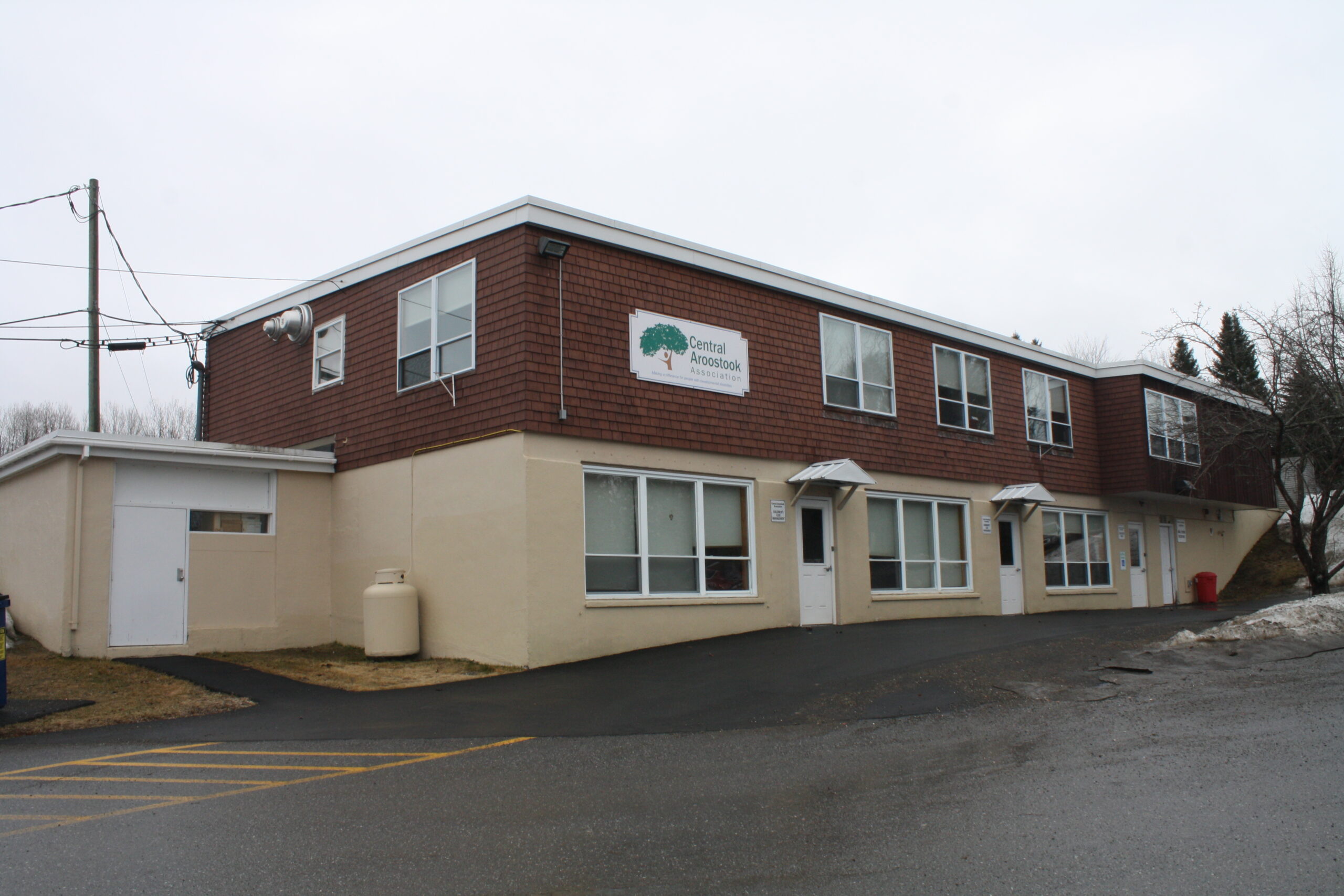
PRESQUE ISLE, Maine — On Nov. 7, 1958, a group of parents placed an advertisement in The Star-Herald to make the public aware of a meeting to be held at Presque Isle High School. The parents, all of whom were raising children with intellectual and developmental disabilities, wanted to establish an association dedicated to giving those children a brighter future.

The Central Aroostook Association is celebrating its 60th year of serving adults and children with developmental and intellectual disabilities. The organization has eight programs including the Opportunity Training Center, a special purpose private school, located on the association’s Lombard Street campus. (Melissa Lizotte | The Star-Herald)
Nearly a year later, in August 1959, the Association for Retarded Children, now known as the Central Aroostook Association, established a day school in the basement of St. Luke’s Church in Caribou that served 12 children from Presque Isle, Fort Fairfield, Caribou and the now defunct Loring Air Force Base in Limestone. They hired two teachers and had a budget of $7.67 to purchase supplies such as crayons and pencils for the students.
In the book “The Little Room at St. Luke’s: A Look into the Past and Future,” written by local author Chris Morton for the Central Aroostook Association, founding member Donald Thibodeau of Presque Isle recalls the stigma surrounding developmental and intellectual disabilities in the late 1950s, which made some community members skeptical about the transition from state-operated institutions to smaller, locally based programs.
“People of fine character were having a difficult time getting this through their mind,” Thibodeau said, about the idea of educating those individuals. “Even the city council was frowning on this.”
Until that era, people with intellectual and developmental disabilities were typically separated from their families at birth and sent to state institutions such as the Pineland Center in New Gloucester, which closed in 1996 after a lawsuit from parents exposed the decades of abuse and neglect that patients endured.
Stephen Richard, the current executive director for the Central Aroostook Association, noted that in Aroostook County many folks wanted to be supportive of community programs to help intellectually disabled people. But most families did not openly share their stories about family members and so for decades people lacked the education and awareness to effectively help those community members.
Today, the Central Aroostook Association operates eight programs based in Presque Isle: case management for adults and children, a special purpose private school, residential homes, shared living homes, adult services, workforce training, children’s services, and home and community supports. Their employees include three master’s level special education teachers, 16 education technicians, a consulting speech therapist and occupational therapist. Their 14-member board of directors consists of staff, community members and parents and siblings of clients the organization serves.
“The reason we exist is because of a group of parents who believed in their sons and daughters and wanted the best for them,” Richard said. “It’s been a gradual movement toward where we are today.”
In 1967, the organization hired its first executive director, Tom Pooler, and that same year Carolyn DeGrass, a parent of one of the children that the association served, travelled to the state Legislature in Augusta to advocate for the building of the special purpose private school, which became the Opportunity Training Center, or OTC. DeGrass successfully convinced the Maine Department of Education to allocate unused special education funding toward the school.
Five years later, the association donated land for the state of Maine to establish the Aroostook Residential Center, which operated Sundays through Fridays and allowed individuals with disabilities to visit their families on the weekends. After the center opened, Richard’s wife, Lucy, who had recently completed a college nursing program, was hired as a registered nurse.
At that time, Richard was a junior at the University of Maine at Presque Isle studying physical education, with plans to become a high school teacher and football coach. Dick Farnsworth, director of the Aroostook Residential Center, offered Richard a job as a house parent at the facility. The couple lived in an apartment at the center and served as house parents for clients until Richard became head teacher for the Central Aroostook Association for Retarded Children two years later.
Following the departure of Pooler in 1976, Richard became executive director, a position he has remained in for 43 years. Since then, he has seen the organization go through three more name changes, establish 41 residential homes and 25 shared living homes throughout Aroostook County, and expand services to hundreds of clients.
The Central Aroostook Association’s adult case management program alone serves 180 clients and the newly established children’s case management program already has 60 individual clients. This year, the organization moved its day program to a location on Main Street in Presque Isle to better accommodate the expanded client base, which now includes 70 people who participate daily.
“We’ve always looked at what the biggest needs are for people in our community,” Richard said.
To celebrate their 60th anniversary, the organization will hold special activities at their Lombard Street campus in August, all of which will be open to the public. A kickoff event on Aug. 23 will feature a Movie in the Park and on the 24th local band Star City Syndicate will perform.
The organization will also hold a human foosball tournament, car show and an exhibit at the OTC gym that tells of the Central Aroostook Association’s history.
“We want to educate the public about what we do and also showcase the campus that we’re proud of,” Richard said.
Richard credits the CAA staff and board members as well as the families involved and the community support for making the organization a success. To this day his office is located at OTC and he makes sure to visit the students on a daily basis. Over the years, he’s experienced numerous memorable moments, such as seeing a former student earn his college degree and witnessing a 10-year-old child take their first steps.
Though Richard began his career as a teacher for OTC, he believes that the students have taught him more about life than anything he would have been able to teach them.
“They’ve taught me to look at a person’s abilities instead of their disabilities and that if you have the determination you could do anything you want,” Richard said. “They’re taught me that there’s always going to be someone more important in your life than yourself.”







